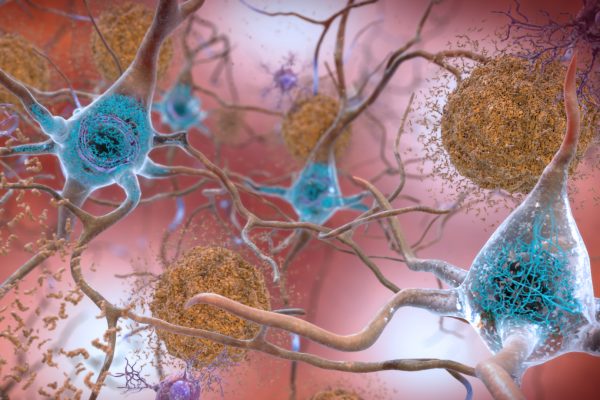By Emilie Morales
As we remember tragic events throughout history and watch ongoing conflicts rock our world through our television and newspapers, we overlook the lasting effects they can have on future generations. Dr. Andrew Kim, assistant professor at UC Berkeley’s Department of Biological Anthropology, partnered with other American and South African researchers to conduct a study that spanned over twenty years through a project called the Birth-to-Twenty Plus study (Bt20+). Bt20+, beginning in 1990, focuses on predominantly black mothers and their children in Soweto-Johannesburg, South Africa.
From 1948 to 1994, South Africa experienced Apartheid, in which the country faced a long history of political violence due to a racially segregated government. This ultimately created violence and a lingering fear in predominantly black communities like Soweto-Johannesburg. Due to these events, it’s been reported that South Africa experiences high rates of mental health issues, and ongoing evidence shows that pregnant women who face great exposure to stress during their pregnancy are more likely to develop mental illnesses in the future. Despite this, no research has been conducted to demonstrate the effects that these mental illnesses have on children. Dr. Kim and the other researchers dove into this study with the aim of understanding the lasting effects trauma has on the generations that follow us.
Beginning their experiments, the researchers kept in mind the stress sensitization hypothesis. This hypothesis suggests that experiencing extreme stress during the development years, from before and after birth, makes a person experience mental health issues at a higher rate in comparison to the average person. A connection was also made from a study from 2015 by Kim S. Betts that showed how the stress experienced by a mother during pregnancy (also known as prenatal stress), could be a factor in a child’s potential sensitivity to stress throughout their life, thus exacerbating the possibility of mental illnesses in adulthood.
The Birth-to-Twenty Plus study (Bt20+), a long-term experiment that followed offspring from birth to the age of twenty, took place in Soweto-Johannesburg, South Africa, the epicenter of major racial and political violence in the final years of apartheid. Groups of pregnant women who resided in the area joined the experiment in 1990, their births taking place from April to June of that same year. This experiment aimed to examine the effects of Apartheid and how it affected the growth and mental well-being of the children in its vicinity. After creating a cohort of participants, the researchers had a total of 3,273 children–all of whom were born to different families in the Bt20+. Successfully, 72% of the original participants continued participating in the study after they turned seventeen years old. Upon finalizing the set of participants, the families in the study partook in 18 waves of data collection. To this day, they are still completing follow-ups, resulting in the renaming of the study to be Bt30+ due to over 30 years passing.
During the period when the mothers were still pregnant, various interviewers conducted several surveys at the beginning of the study. In the course of these sessions, the women were asked about their home life, including their house and family size, marital status, age, and past pregnancies. Upon the births of the children, the women were surveyed again to gain information about their children, collecting data about their birth weight, gender, familial placement in terms of age, and at what week of the pregnancy they were born. Upon their births, mothers were asked if they had experienced any household stress that could be categorized in the timeframe between 6 months, meaning recent, or 12 months, meaning past. The types of stress that have been present in recent days consist of events such as the death of a family member, divorce, serious illnesses, and unemployment. Past stress consisted of events like robbery, sexual assault, threats, or physical violence.
When the children reached the ages of seventeen and eighteen, the researchers were ready to test if prenatal stress truly did affect their mental health in adulthood through the General Health Questionnaire (GHQ-28). The GHQ-28 is a questionnaire that is designed to screen for any possible mental illnesses through questions that touch on four sections: somatic symptoms, anxiety and insomnia, social dysfunction, and severe depression. A group of 304 now-grown children and their mothers would answer this survey about how they had been feeling in the past four weeks, with their answers consisting of “less than usual,” “no more than usual,” “rather more than usual,” and “much more than usual” in response to potential symptoms.
From the sample, it was concluded that 24% (around 74 individuals) of the adolescents had scored above the cutoff, indicating they were struggling with mental health problems. Running their data through Stata (a statistical software program used to collect and interpret data), researchers noticed that the mothers’ stress during pregnancy played a positive yet nonsignificant role in these high scores. However, after further development of the data, it was found that this stress didn’t show any association with the mental health issues the children were facing. Additionally, they observed that the number of pregnancies, adjusted birth weight, and recent adverse events had a direct correlation with stress outcomes. The results showed that a higher number of pregnancies produced lower mental health problems, while adjusted birth weight and recent stress created a greater probability of mental health problems.
Despite these unexpected results, the researchers persisted and examined more factors that could affect the GHQ scores. They looked into factors such as social support, age of mother, and stress that may have formed within 12 to 6 months. They hypothesized that positive social support during pregnancy could potentially lower psychological problems that emerged from prenatal stress, but no connection was successfully made. When looking into whether the age of the mother had any connection to the poor mental health of the children, it was noted that younger mothers had more issues that became prevalent.
Finally, they reintroduced the stress-sensitization hypothesis by evaluating interactions between prenatal stress and stress that had occurred recently and in the past. To their surprise, they saw that the scores were higher for the adolescents who had experienced past stress, revealing that the impact of prenatal produced more distress for those who were living in households with greater stress and more exposure to trauma.
To conclude their study, the researchers established that fetal development is crucial for the future mental health of adolescents–especially if they face any stress from their environment in adulthood. Additionally, it was also concluded that prenatal stress can put a child at a higher risk of developing psychological problems in their later life. As a result, their study is one of the first research projects to look into long-term mental health complications in children who were in the womb while their mothers endured heavy stress, producing essential data for the understanding of child development.






